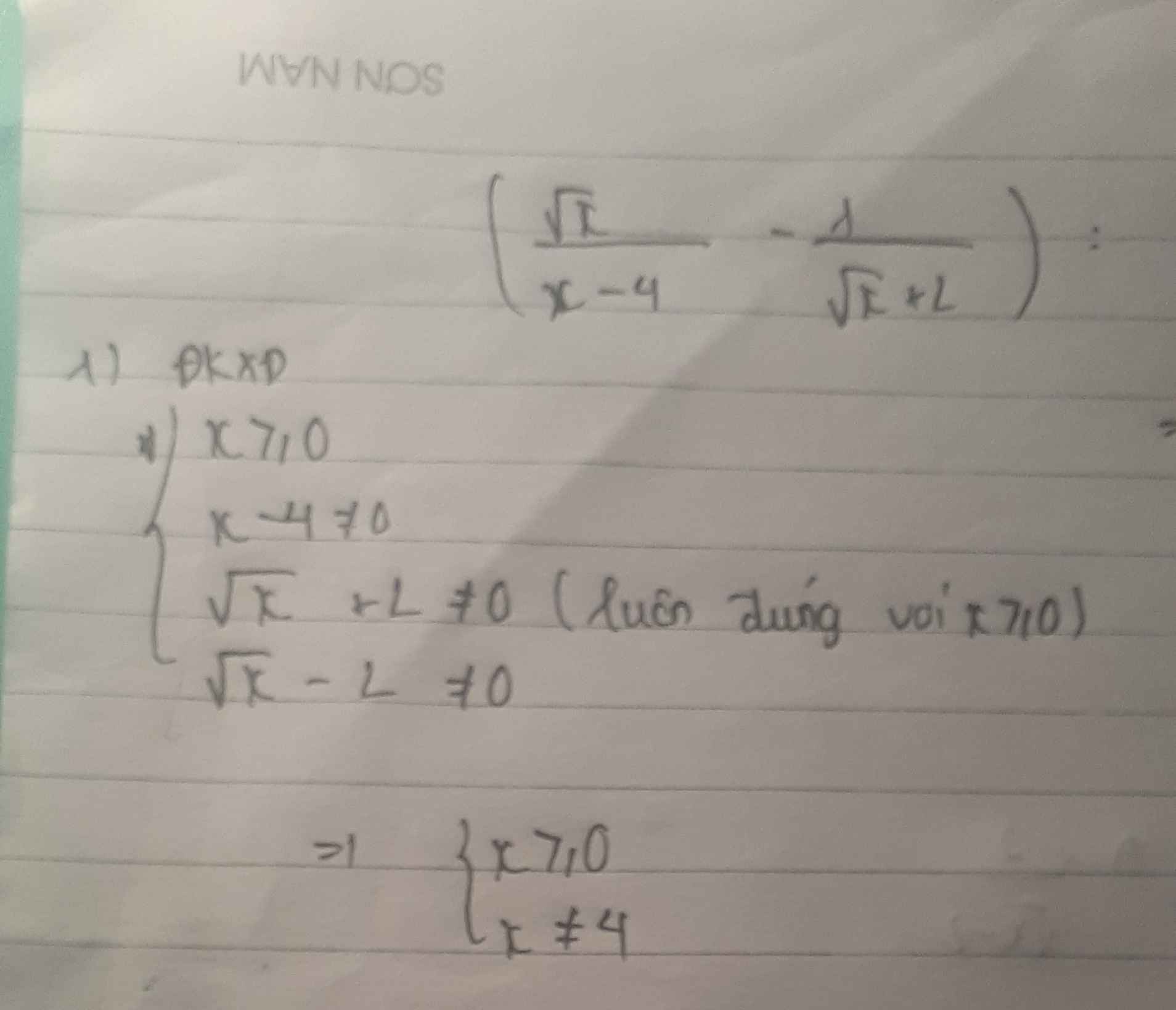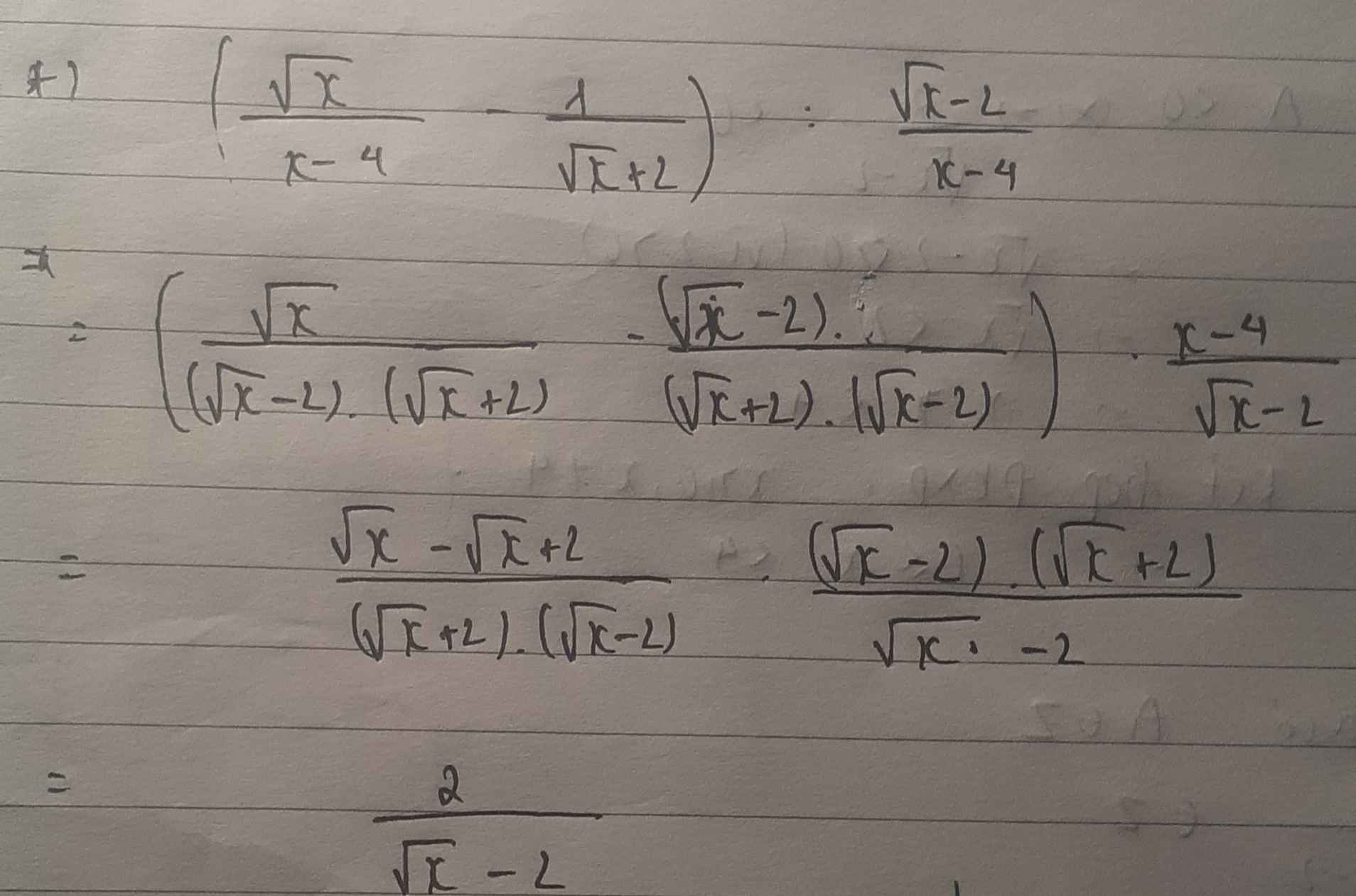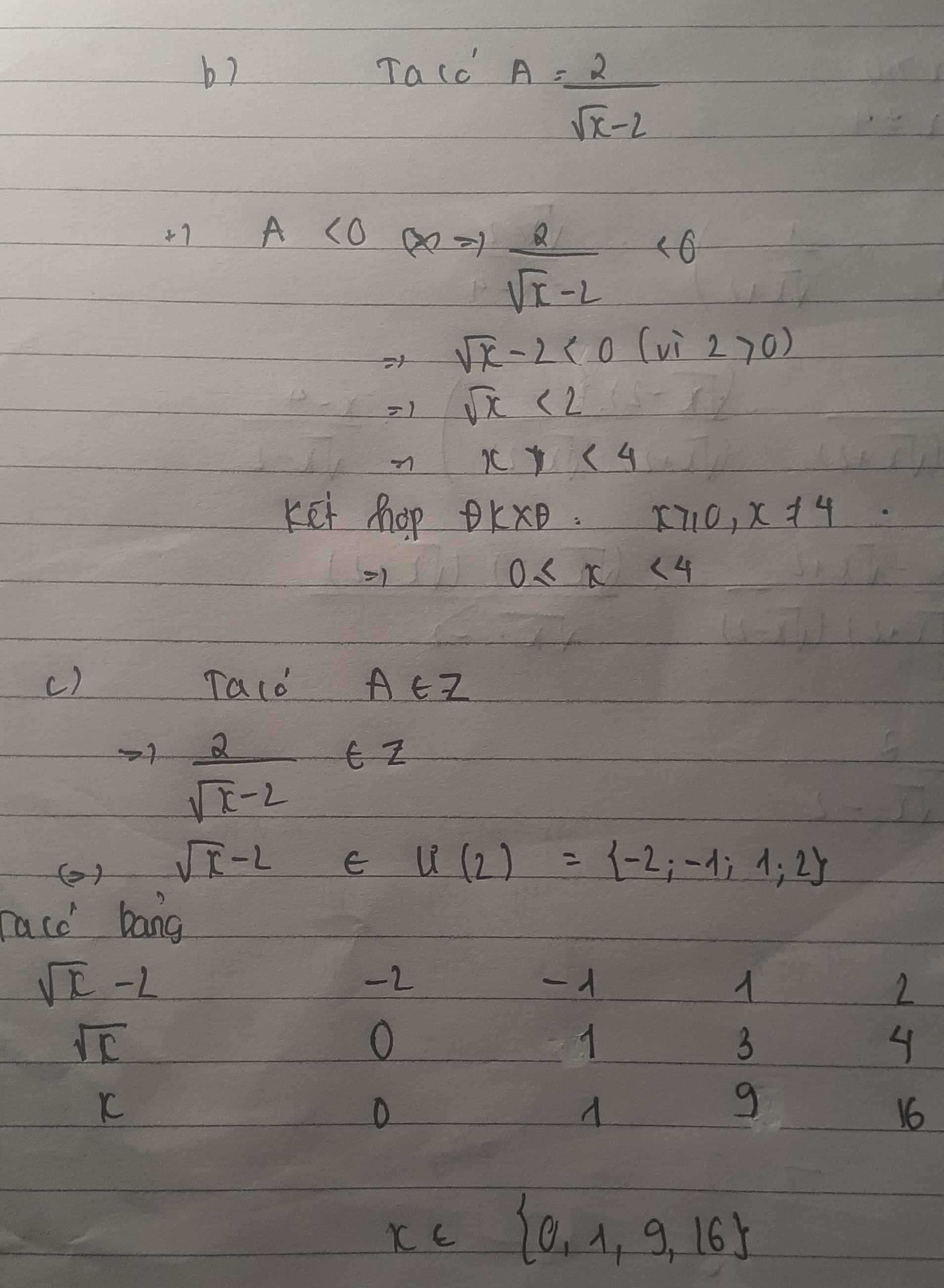Tìm giá trị nguyên của x để biểu thức P=\(\dfrac{4+\sqrt{x}}{1+\sqrt{x}}\) có giá trị lớn nhất
Hãy nhập câu hỏi của bạn vào đây, nếu là tài khoản VIP, bạn sẽ được ưu tiên trả lời.


a: \(P=\left(\dfrac{2+\sqrt{x}-1}{\left(\sqrt{x}-1\right)\left(\sqrt{x}+1\right)}\right):\dfrac{\sqrt{x}+1-\sqrt{x}}{\sqrt{x}+1}\)
\(=\dfrac{1}{\sqrt{x}-1}\cdot\dfrac{\sqrt{x}+1}{1}=\dfrac{\sqrt{x}+1}{\sqrt{x}-1}\)
b: Để P nguyên thì \(\sqrt{x}+1⋮\sqrt{x}-1\)
\(\Leftrightarrow\sqrt{x}-1\in\left\{-1;1;2\right\}\)
hay \(x\in\left\{0;4;9\right\}\)

`C=(sqrtx+3)/(sqrtx-2)=(sqrtx-2+5)/(sqrtx-2)=1+5/(sqrtx-2)`
Ta cần tìm `max(5/(sqrtx-2))`
Nếu `0<=x<4` thì `5/(sqrtx-2)<0`
Nếu `x>4` thì `5/(sqrtx-2)>0`
Do đó ta chỉ xét `x>4` hay `x>=5(` Do `x` nguyên `)`
`=>sqrtx-2>=sqrt5-2`
`=>5/(sqrtx-2)<=5/(sqrt5-2)`
`=>C<=1+5/(sqrt5-2)=11+sqrt5`
Vậy `C_(max)=11+sqrt5<=>x=5`




\(P=\dfrac{\sqrt{x}+1+3}{\sqrt{x}+1}=1+\dfrac{3}{\sqrt{x}+1}\)
P lớn nhất khi căn x+1=1
=>x=0